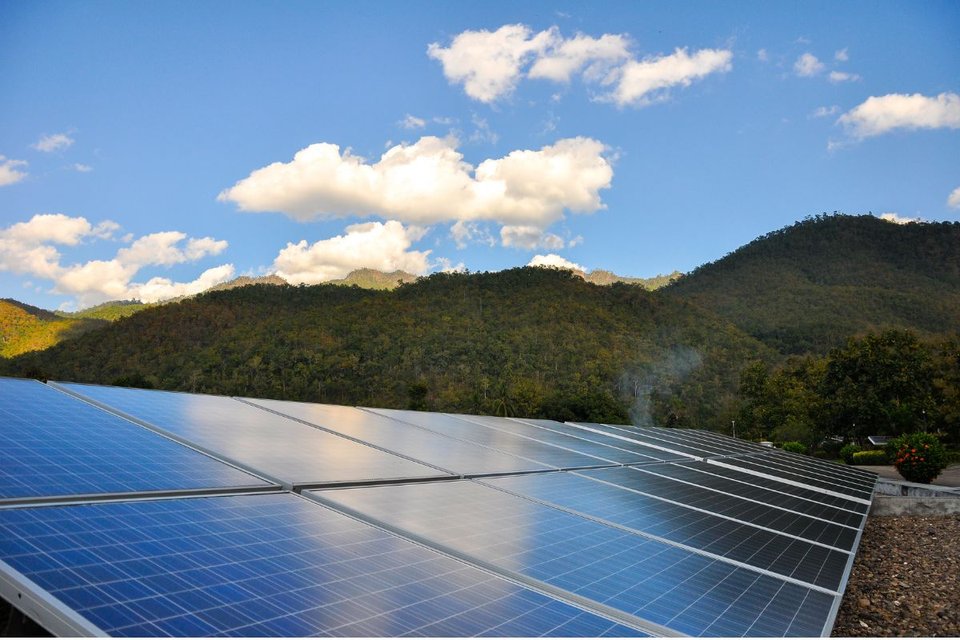Member/Partner News
Solar PV in Brazil surpass 16 GW, celebrates ABSOLAR

Since 2012, solar PV sector brought more than BRL 86.2 billion in investments and generated more than 479,800 new jobs.
São Paulo, June 2022 – Exactly sixty days after reaches 15 gigawatts (GW), Brazil already surpasses a new historic mark. Now the country counts more than 16 GW of operational installed capacity from solar photovoltaic (PV), considering both large-scale power plants and the systems installed on rooftops, facades or small plots.
According to Brazilian Solar Photovoltaic Energy Association (ABSOLAR), solar PV has already brought to Brazil more than BRL 86.2 billion in new investments, BRL 22.8 billion of collections in public coffers and has generated more than 479,800 jobs since 2012. In addition, avoided the emission of 23.6 million tons of CO2 in the electricity generation.
For ABSOLAR’s CEO, Rodrigo Sauaia, solar PV advance through both large-scale power plants and systems for own electricity generation in homes, small businesses, rural properties and public buildings, serving as a prop for the social, economic and environmental Brazilian development. “Solar is the most competitive renewable source in the country and a real lever for economic, social and environmental development, generating employment and income, attracting investments, diversifying the electricity matrix, and providing systemic benefits for all Brazilian consumers.” he said.
“Large-scale solar PV is the sixth largest power source in Brazil and their generation is up to ten times cheaper than fossil fuel electricity generation or than imported electricity from neighboring countries”, adds Sauaia.
According to the association’s survey, the sector expects an accelerated growth of solar systems in Brazil this year, especially self-generation systems, due to the increase in electricity tariffs and the creation of the legal framework for distributed generation (Law nº 14,300/2022). “We project a very robust growth in solar energy this year, driven by the high cost of the electricity bill and the benefits provided to consumers as a definitive solution to guarantee electricity supply at competitive prices. Photovoltaic technology has become increasingly popular in the country, reaching all classes of consumption, and causing a multiplier effect in Brazilian society”, comments the chairman of ABSOLAR’s Board of Administrators, Ronaldo Koloszuk.
Brazil is very close to reach 5.1 GW of installed capacity in large solar power plants, which represents 2.6% of the Brazilian electricity matrix. Since 2012, large-scale solar PV brought to Brazil over BRL 27.0 billion in new investments, BRL 8.4 billion of collections in public coffers and has created more than 152,000 jobs.
In the distributed generation segment – which in Brazil includes small- and medium-sized projects, equal to or below 5 MW that are eligible for net-metering – there is more than 10.9 GW of installed capacity from the solar PV, which brought to Brazil more than BRL 59.2 billion in new investments, BRL 14.4 billion of collections in public coffers and has generated more than 327,800 jobs, since 2012. Solar PV represents 99.9% of the number of distributed generation systems and leads the distributed generation segment by a wide margin.
Considering solar PV generation provided by both, large power plants and distributed generation, the solar source holds the fifth position in the national electric matrix. The solar surpassed the power capacity of fossil fuels thermal generation plants in the Brazilian electric matrix and is approaching to the total installed power from biomass power plants.
According to Koloszuk, solar PV is competitive, affordable and quick to install. On top of that, it helps ease consumers’ pockets. Up to 90% of household expenses can be reduced using this sustainable source. “Competitive and clean electricity is essential for the country to recover its economy and be able to grow. The solar source is part of this solution and a real engine for generating opportunities and new jobs”, he concludes.
![Global Solar Council [logo]](/static/images/gsc-logo-horizontal.svg)